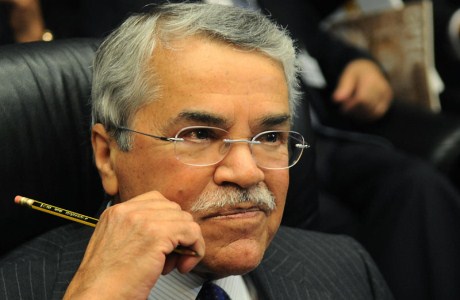Saudi Arabia, the world’s largest oil exporter, is prepared to fill any gap in world oil markets caused by sanctions against Iran, but will do so only reluctantly, an official from the Gulf state said Monday.
“We don’t want to replace Iranian oil and we never said we wanted to. We will step in and fill any gap in the market if needed,” said the oil official, who asked not to be named. “No one is happy with the current situation about the Iranian sanctions. Neither the Americans, the Europeans or Asians are pleased with it.”
Saudi Oil Minister Ali al-Naimi has previously said that the Gulf state isn’t seeking to replace Iranian crude should foreign sanctions be imposed on Iran, but it can “almost immediately” ramp up production by about 2 million barrels per day if customers want more oil.
The kingdom will respond to its customers’ demands for more oil but “it doesn’t want to get involved in the politics behind the sanctions,” the Saudi official clarified Monday.
The official’s comments come ahead of a meeting this week in Kuwait City attended by the Iranian oil minister and organized by the International Energy Forum, an independent organization based in Riyadh that works with the Organization of Petroleum Exporting Countries, the International Energy Agency, and transit oil countries.
The remarks could be an attempt by Saudi Arabia to avoid confrontation with rival producer Iran after an OPEC meeting in June failed to agree a deal amid bitter discord over whether to up oil production, raising questions on the group’s credibility.
Saudi Arabia’s oil output was 9.8 million barrels per day in February steady with January and is seen continuing at current high levels despite recent efforts by some countries to switch to crude from the kingdom ahead of stifling sanctions on Iran and its exports later this year.
As the European Union’s July 1 deadline for its oil embargo on Iran draws nearer, Japan and Spain have reduced their imports of Iranian crude by 12% and 37% respectively. Neither country has given potential sanctions as a reason for switching producers.
Saudi Arabia’s output rose dramatically in November to 10.047 million barrels per day—the highest level in three decades—from 9.362 million barrels per day a month earlier on higher demand from Asia.



